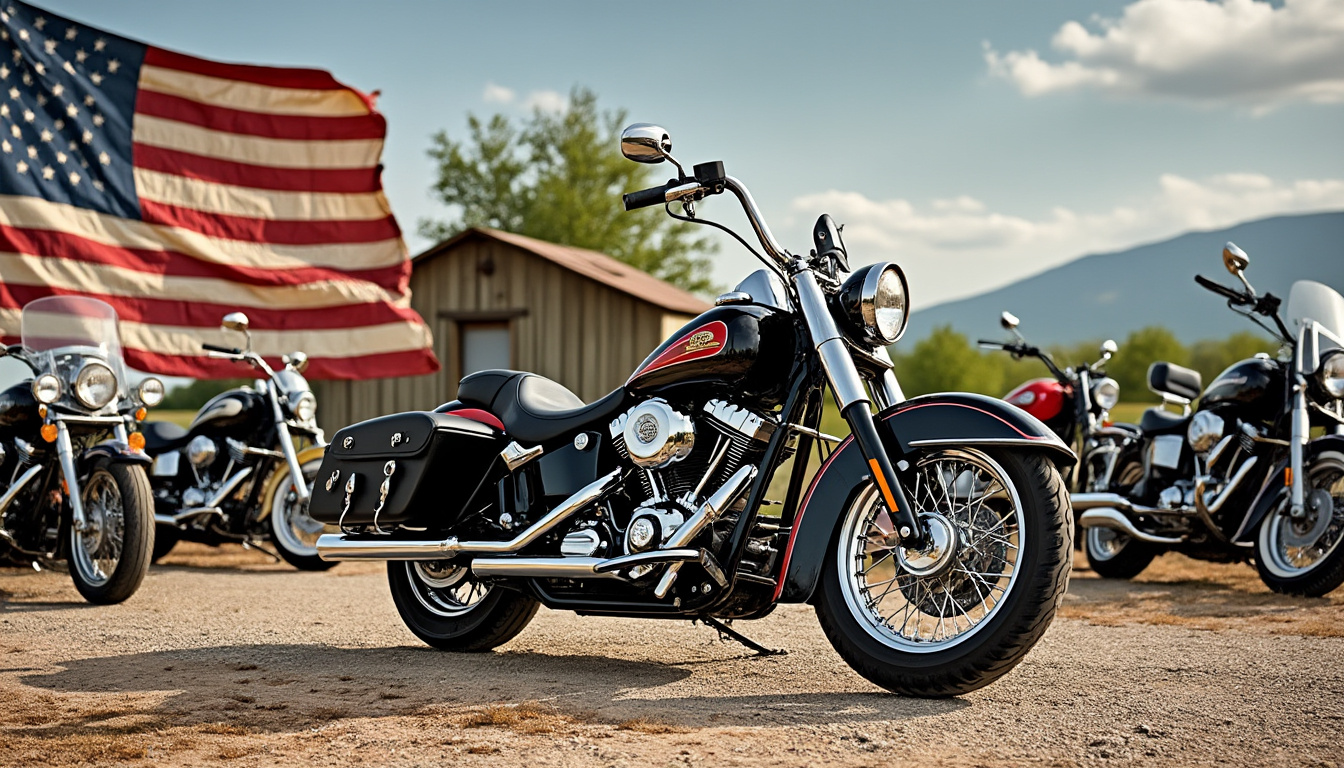The delicate balance between freedom and security: the heated debate over helmet use in the United States

The question of helmet use in motorcycles in the United States is a subject that perfectly illustrates the tensions between individual freedom and collective responsibility. In a landscape where each state has its own legislation, the requirement or not to wear a helmet sparks passionate debates. Political figures fuel these discussions, highlighting arguments that touch on both citizens' freedom of choice and road safety, reflecting a culture deeply rooted in motorcycles and personal autonomy.
Helmet regulations: a heterogeneous landscape
In the United States, helmet regulations vary significantly from state to state. Of the 50 states that make up the country, only 19 mandate helmet use. In comparison, all countries in the European Union consider this measure to be an essential safety standard. This contrast highlights different cultural attitudes toward safety and regulation.

A fragmented legislation
The disparity between states can be explained by various factors, ranging from local traditions to the influence of lobbying groups. In states like California, helmet use is mandatory for all motorcyclists, whereas in Florida, the law allows adults to ride without a helmet as long as they have adequate medical insurance. This flexibility may be appealing, but it also raises questions about individual responsibility and the protection of human lives.The question arises: should personal freedom take precedence over safety?
- 19 states require helmet use
- Regulatory differences influenced by local culture
- State of Florida: freedom of choice conditional on insurance
Arguments in favor of the mandate
Advocates of mandatory helmet use highlight significant data. According to the World Health Organization, helmets can reduce the risk of death by about 37% and serious head injuries by up to 74%. These statistics support the idea that wearing a helmet should be a widespread safety measure, regardless of individualistic policies.
Other arguments include the reduction of healthcare costs and the minimization of family tragedies caused by preventable accidents. Indeed, motorcycle accidents lead to considerable medical expenses for states and insurance systems. Implementing a helmet mandate could, therefore, ultimately alleviate the economic burden on the healthcare system.
The freedom discourse: the voice of Dave Foggin
In the modern debate on helmet use, some people go further by advocating for freedom of choice, even at the risk of increasing the number of accidents. Dave Foggin, a politician from West Virginia, recently stirred controversy by asserting that making helmet use mandatory harms motorcycle sales. For him, fewer helmets mean a boost in motorcycle sales, which, paradoxically, would strengthen the local economy.
A questionable vision
This vision provokes a hostile reaction from many road safety experts. Critics emphasize that the economy should never take precedence over human life. Citing examples from other states, like Missouri, which stripped helmet legislation, opponents of Foggin point out the alarming increase in motorcyclists' deaths. Since the relaxation of the rules in 2020, the state has recorded a 47% increase in fatalities in just four years. Thus, the link between reducing safety laws and increasing accidents becomes glaringly evident.
- Economic argument against road safety
- Increase in deaths after relaxing laws
- Reactions from road safety advocates
The impact of motorcycle culture on the debate
The motorcycle culture in the United States is rich and complex. It is often associated with ideals of freedom, adventure, and rejection of traditional norms. This culture has given rise to numerous motorcycle clubs, gatherings, and a distinctive lifestyle. However, this ideal can sometimes clash with darker realities, especially regarding safety.

The identity of the motorcyclist
For many, wearing a helmet is perceived as an infringement on their freedom. Motorcyclists often identify with a community that values independence and autonomy. Being required to wear a helmet is therefore seen as government interference in their way of life. This cultural perception further complicates the debate on road safety.
Motorcycle clubs, such as the AMA (American Motorcyclist Association), are often at the forefront of advocating for freedom of choice, arguing that adult motorcyclists should have the opportunity to decide for themselves the risks they are willing to take. This reinforces the idea that motorcycle culture is not only a means of transportation but also a statement of freedom.
- Celebration of freedom and independence
- Influence of motorcycle clubs
- Resistance to regulation perceived as oppressive
The media and the role of social networks in the debate
In an era where information circulates at lightning speed, the media and social networks play a central role in how the debate on helmet use unfolds. Statements from political figures, tragic accidents, and awareness campaigns are often amplified by digital platforms, which can lead to heated and sometimes irrational reactions.
Voices for and against
On platforms like Twitter and Facebook, users share their opinions on helmet use. These discussions range from enthusiasm for individual freedom to serious concerns about safety. Testimonies from road victims and healthcare professionals often highlight the dramatic consequences of accidents without helmets.
The challenge is to sift through the information and engage in constructive dialogue. Social networks can indeed be a forum for meaningful discussions, but they are sometimes the stage for polarized exchanges that make achieving consensus difficult. With so many different perspectives, how can we move toward a balanced solution?
The path to balanced regulation
Establishing laws on helmet use that address safety concerns while respecting individual freedom is a multifaceted challenge. An interesting approach could involve education campaigns that highlight not only the statistics on injuries and fatalities but also the emotional impact that motorcycle accidents can have on families and communities.
| State | Legality of helmet use | Death statistics |
|---|---|---|
| California | Mandatory | Stable |
| Florida | Optional (if insured) | On the rise |
| Missouri | Optional (over 26 years old) | 47% increase |
| West Virginia | Mandatory for minors | To be monitored |
A regulatory framework that includes incentives for helmet use, rather than a strict mandate, could reconcile these two dimensions. It could also open the door to discussions about shared responsibilities between the state and motorcyclists, involving the community in road safety.
Ultimately, the challenge is to create a space where individual liberties do not undermine collective safety. With respectful dialogues and a willingness to learn from the experiences of other states and countries, it will be possible to move towards regulations that effectively protect motorcyclists while respecting their rights.
Source: www.caradisiac.com
Leave a Reply


Articles relatifs